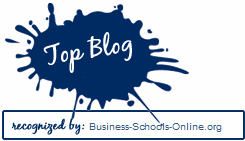A few weeks ago I had the pleasure of speaking to the Pro Track 2009 program of the National Speakers Association, Northern CA Chapter. Pro Track is a year-long professional development program for people who want to learn the business aspects of the public speaking industry. Group members meet one Saturday a month for a year. Each Saturday program is devoted to a different topic, such as promotion, marketing, speakers’ bureaus, topic development, and professional platform skills. Typically, people who attend the year-long program are subject matter experts who want to improve their professional speaking skills and leave a memorable impression on their listeners.
When I introduce people to our public speaking methods and skills, I tell them that they may feel uncomfortable at first. They may feel and look awkward. They may believe they’re getting worse instead of better. They may even think they’re too mechanical, inauthentic, and fake. But learning new skills and behaviors often feels this way, so I encourage them to just jump in and try it. “Fake it until you make it,” I say.
I was delighted to introduce the Pro Track audience to one of our performance improvement models called Create Performance Combustion. The critical elements of this model focus on developing delivery skills and include your:
• Physical Presence (your non-verbal skills: eye contact, facial expression, posture, gesture and movement)
• Vocal Resonance (skills that promote vocal clarity, interest and emphasis)
• Distinctive Language (your language skills: using concise sentences, powerful language, avoiding non-words and distracting language)
After that I had the chance to work with seven participants, bringing them on stage to experience our Line by Line Coaching™ process. I coached each person with the camera running so they had a DVD to review and analyze their “before and after.” Amazingly, nobody fainted and everyone improved!
I wanted these speakers to understand one key point: There is a big difference between giving a presentation at a staff meeting (or chatting at the dinner table) and standing on the main stage of an auditorium speaking to a crowd of 100 or more.
A keynote speech needs to have a compelling theme and well developed message with great stories, examples, quotes, data, and facts, but it also needs powerful delivery. That includes demonstrating commanding physical presence and strong vocal expression. Public speaking requires using a great deal of physical and mental energy, and speakers must be willing to be more expressive. It’s as simple as that, and it’s harder than it looks.
So the key lesson of the day was this: Keynote speaking is not a conversation—it is a performance. It’s the difference between playing with marbles and playing with bowling balls…or playing ping pong and playing tennis. In each case there is a need for different gross motor movements and physical behavior.
When performing, your whole body must be involved and you must effectively utilize your space. To be able to Create Performance Combustion you must “turn up” your physical skills. Body language must be bigger, your voice must have more power and emphasis, and your pauses must be longer and more strategic. Adding a dramatic element to keynote speaking, if used effectively, can bring you in close connection with the audience in a deep and meaningful way. And that’s what the Pro Track participants want to be able to do.
At the Pro Track meeting I was reminded once again how important it is for those of us who want to improve our public speaking to embrace the idea of performance. Rest assured that even if it is uncomfortable at first, it will become easier and easier. And until it does—fake it until you make it.





April 23rd, 2009 at 12:45 pm
Yes, it is certainly a performance. And the biggest trick is to make that performance feel like a conversation for the people in the audience, no matter how large it is.
June 25th, 2011 at 4:51 pm
Hi, your article is very instructive and I actually like the content material where in every detail is very essential. Somehow, it provides me more understanding about things that is happening nowadays.
June 29th, 2011 at 5:26 pm
Thank you for the compliment Roger! If you’re not already, sign-up for our monthly Newsletter and receive many more useful tips as well as a Free Report: The Top 10 Presentation Tips to Help you Come Alive! Our July 2011 Newsletter is coming out in just a couple of weeks. http://t.co/WVGsZBr